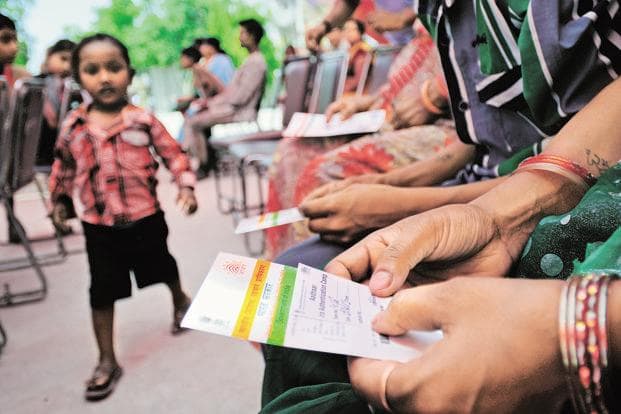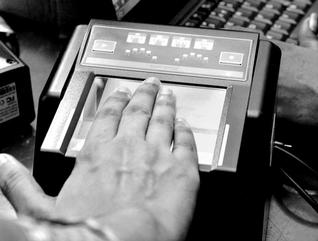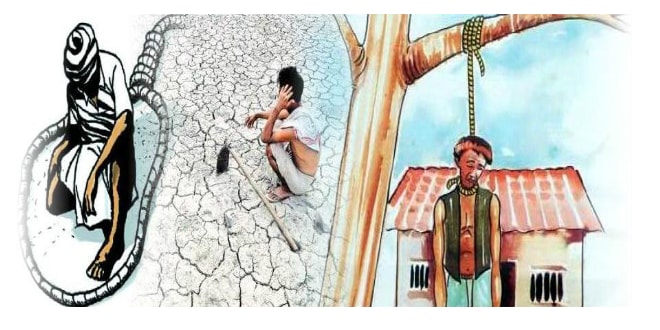IASbaba's Daily Current Affairs Analysis, IASbaba's Daily Current Affairs August 2015, International, National, UPSC
Archives
IASbaba’s Daily Current Affairs- 3rd August, 2015
NATIONAL
A basic right is in danger: A dangerous convergence of DNA- profiling and Aadhaar
- India’s rush in creating a DNA-profiling system and the reach of Aadhaar pose a danger to individual privacy.
- Two distinct processes based on questionable premises and exaggerated benefits are converging, threatening individual liberties in India. This convergence can undermine existing constitutional interpretation of the right to privacy.

UID project (Aadhaar):
- The UID project (Aadhaar), is a simple way to authenticate an individual’s identity and prevent fraud so that benefits reach the right person. For the poor, who lack other forms of identification, the system is meant to eliminate hurdles and reduce the likelihood of corruption.
DNA-profiling project:
- The DNA project can have positive outcomes, such as identifying missing
 persons or victims of disasters. DNA-based evidence can also establish the innocence of a defendant in a criminal case aims to assist in solving crimes, identify victims after a natural disaster, and trace missing persons, but the database will include ‘volunteers’ and any other index that regulators wish to add.
persons or victims of disasters. DNA-based evidence can also establish the innocence of a defendant in a criminal case aims to assist in solving crimes, identify victims after a natural disaster, and trace missing persons, but the database will include ‘volunteers’ and any other index that regulators wish to add. - Proper identification can protect the poor from getting cheated; intermediaries will find it harder to inflate the number of beneficiaries and pocket the difference.
- However, both the projects have limited scrutiny of their impact on individual privacy.
Issues:
- A nationwide database that links individuals with their DNA, connecting personal data with biometric information, gives enormous powers to the state, and there are few credible safeguards.
- Democratic countries with superior technologies and well-established search-and-seizure authority have set rigorous standards to protect individual privacy. Their bureaucracies have learned the hard way that over-reliance on data can be counterproductive, and there have been repeated failures of protecting data.
- Also, Edward Snowden’s revelations about the U.S. show, even governments that have strong laws respecting individual rights ignore restraints on their powers. Nobody likes being accused of being soft on terrorism, particularly in times of strife.
- The government may argue that, project Aadhaar is used only to assign random numbers to individuals. But once that database is accessible to other agencies government and private, they can link or match the data with other databases and get a precise profile of individuals beyond what is strictly necessary e., what are their preferences and tastes; to which communities they belong; and with whom they interact.
- A rogue government can also impose mass surveillance on a scale unimagined, enabling the state to track any individual. Databases can be linked easily and there are no safeguards to prevent misuse. Public and private agencies have demanded Aadhaar numbers from Indians performing routine transactions or seeking access to government services, without explaining why the numbers are needed.
- The DNA-mapping project also categorizes people by caste. What purpose does that serve? When such data is overlaid with data from Aadhaar, which has people’s addresses, it makes the job of identifying specific groups simpler. Given India’s record of communal violence, it is not far-fetched to think that anthropologists, demographers or market researchers are not the only ones who would want access to such data.
Constitutional Status:
- In a Supreme Court case where petitioners had challenged the Aadhaar card being made compulsory, attorney general Mukul Rohatgi has argued that privacy is not a fundamental right in India. This has brought to the fore the constitutional status of Right to Privacy.
- Regarding this issue, the Supreme Court of India, in its previous cases (P. Sharma case and Kharak Singhcase) had made references to the American Fourth Amendment. The American Fourth Amendment pertains to the “right of the people to be secure in their persons, houses, papers, and effects, against unreasonable searches and seizures”. It is concerned only with one aspect of right to privacy and not to privacy as a whole.
- Though right of privacy is not a guaranteed right under our Constitution, the two cases do not rule out a broad constitutional right to privacy.
- It is almost impossible to consider the right to privacy in its entirety in a single case since it is a bundle of rights including everything from safeguards against unauthorised collection of personal data to restrictions on intrusion into private spaces. The cases that have emerged from the Supreme Court over the years make this apparent.
- Different elements of privacy rights have been read into our right to life (Article 21) and our right to free expression (Article 19). We have a right against untrammelled interception of our communication, and against doctors divulging personal medical information. Long before the Constitution or the Constituent Assembly came into being, the right to privacy of women in purdah was acknowledged by common law.
- Ignoring the right to privacy will not only affect India’s ‘global image’ it will also complicate international commercial relations. Who would send their information or employees to a country that disregards its residents’ right to privacy?
Connecting the dots:
- Does the DNA and UID project strengthen the State and intrude the privacy of an individual? Give your arguments.
- Is right to privacy a Fundamental Right? Will this impact the cultural norms of our country?
- Is there any safeguard mechanism available to protect the right to privacy? How can the data collected be prevented from misuse?
NOTE: For more information on DNA profiling Bill and UID (Aadhaar) – refer IASbaba’s previous news analysis/current affairs.
Is there an Elitist bias in Public Policy making ?
- Recall Lal Bahadur Shastri’s famous slogan, “Jai Jawan, Jai Kisan”, which was later extended to include “Jai Vigyan” by Atal Bihari Vajpayee.
- Prime Minister Narendra Modi may put his own stamp with another twist, but the message is not going to change too much.
- The real question is: If we are really thankful to them, how far have we made our jawans and kisans really happy for the job they have accomplished?

What is the status of our Kisans?
- Today, India’s granaries are overflowing. Wheat and rice stocks with the government in June were at 60 million metric tonnes (mmt) — about 50 per cent higher than even the augmented buffer stock norms.
- Poor storage conditions lead to rapid deterioration in quality.
- The sugar industry, and therefore sugarcane farmers, is in deep crisis.
- Cotton, corn, soya and so on — you name a commodity and you find a glut, with profit margins deeply squeezed. Is this how we salute our farmers for giving food security to the country?
What is the root of the problem?
- It is in the mindset.
- Elitist biases in public policy mean booming stock markets, a dazzling manufacturing sector, rapid strides in Urbanisation, with world-class infrastructure of bullet trains and the like, are prioritized.
- But the reality is that the masses in rural areas are finding it hard to make basic ends meet.
What is the future of the Indian economy?
- The future of the Indian economy lies in greater industrialisation, urbanisation, service industry growth, etc, provided these emerging sectors are globally competitive and able to absorb an increasing share of the labour force.
- But currently, almost half the workforce is engaged in agriculture, and unless it is schooled and skilled, it cannot move to high productivity jobs in urban areas.
- And this process is going to take at least 15-20 years, or even longer, when the proportion of the workforce engaged in agriculture will come down to, say, less than 25 per cent of overall labour.
IAS BABA’s View
- It is not too late to learn. It needs to focus on irrigation and water management, agri-insurance, national agri-markets, and rural infrastructure of roads and power supplies.
- This is a huge agenda for the next five years or so, before it can start to sustain itself.
- Till then, one has to remain focused and persevere. Agriculture needs a strong champion in the government to keep it at the centre of public policy, lest the elitist biases hijack public policy for the already well-to-do sections of society.
Connecting the Dots:
- Why they should focus on agriculture when its contribution to GDP has decreased to less than 15 per cent (at factor cost)?
- Why are crop insurance premiums so high in India?
INTERNATIONAL
A tale of two nuclear deals
- The finalization of the P-5+1-Iran nuclear deal coincided with the tenth anniversary of the India-U.S. nuclear deal by sheer chance.
- But the two deals, which came ten years apart, reveal American strategy to deal with nuclear proliferation in two distinct situations and two different times.
What is P-5+1 Iran Nuclear Deal?
- The P5+1 is a group of six world powers which, in 2006, joined together in diplomatic efforts with Iran with regard to its nuclear program.
- The term refers to the UN Security Council’s five permanent members (the P5) namely China, France, Russia, the United Kingdom, and the United States; plus Germany.
- The P5+1 are often referred to as the E3+3 by European countries.
What is India-U.S Nuclear Deal?
- The 123 Agreement signed between the United States of America and the Republic of India is known as the U.S.–India Civil Nuclear Agreement or Indo-US nuclear deal.
- India agreed to separate its civil and military nuclear facilities and to place all its civil nuclear facilities under International Atomic Energy Agency (IAEA) safeguards and, in exchange, the United States agreed to work toward full civil nuclear cooperation with India.
Do these Deals Serve strategic interests of U.S?
- The objective was to put the nuclear genie back in the bottle in both cases, though it looked positive in the case of India and negative in the case of Iran.
- The U.S. was alarmed by the weapon tests of India in 1998 even more than the revelation in 2002 of Iran’s nuclear activities.
- Imposition of sanctions against India and Iran were swift and severe, once it became clear that India would not sign the Comprehensive Test Ban Treaty (CTBT) and Iran would not abandon enrichment.
Are these two deals out of fear from UNCLE SAM?
- The position of strength the U.S. had in both cases derived from the crippling sanctions that India and Iran feared, though in the case of India, the sanctions had disappeared for extraneous reasons even before the negotiations on the deal began.
- Iran was aware that the major difference between the two countries was that India was not a signatory to the NPT, but expected that it could make up for it by hide-and- seek.
- Iran expressed readiness to allow inspection of their facilities, but each time the inspectors came back with more questions than answers.
How did these deals improve the relations of the countries?
- In a sense, the deal has liberated Iran from the threats of war and crippling sanctions, without having to abandon its nuclear programme altogether.
- It is more transformational to the region and the world than the India deal.
- Iran’s new economic freedom and consequential prosperity will propel it to the forefront of the region, posing a challenge to Saudi Arabia and others.
- It may even become a partner of the United States and others in their battle against the Islamic State.
- The Iran deal marked a new beginning in Iran-U.S. relations, while the India deal was a culmination of a process of rapproachment.
Connecting the Dots:
- Write a note on Trust deficiency between INDIA-IRAN and United States w.r.t Nuclear deals.
- What is Hyde Act?
- Write a note on Comprehensive Test Ban Treaty (CTBT) and NPT.











